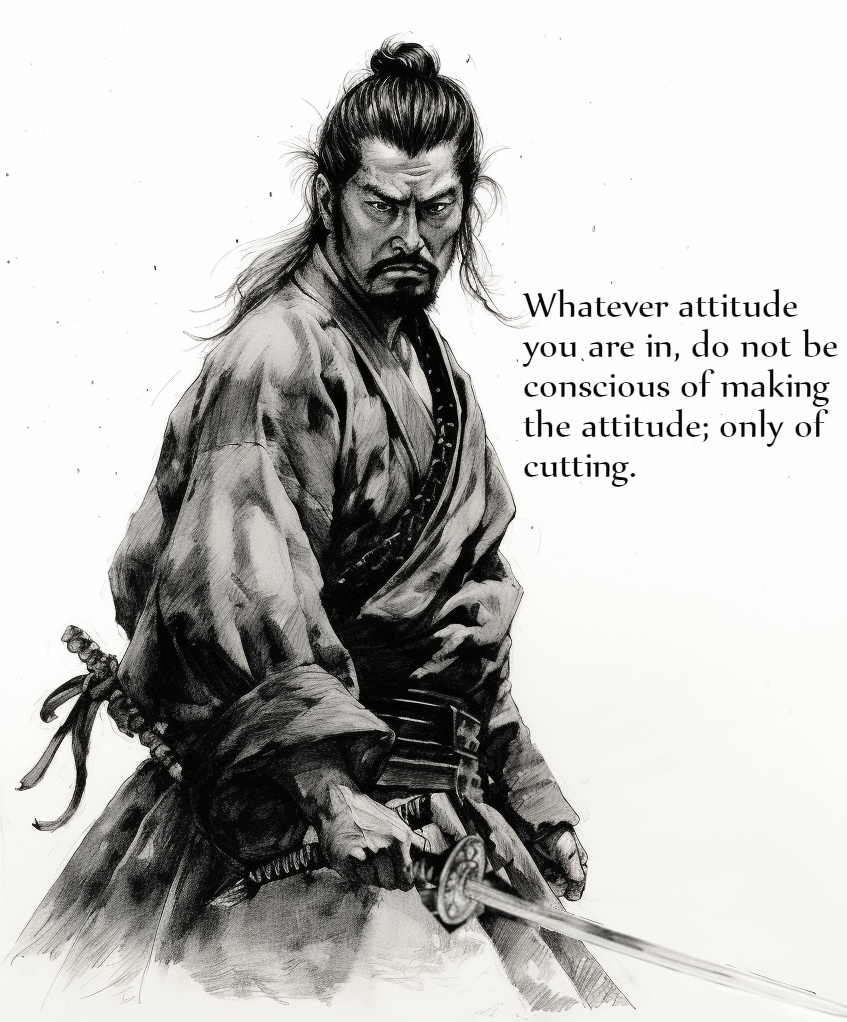Only the Cutting

This quote from Myamoto Musashi has always struck me as a book contained in a single sentence.
In order to appreciate it, you must know a few facts about its author. Myamoto Mushashi (real name: Shinmen Bennosuke) was a 17th century Japanese swordsman, arguably Japan’s greatest. He is credited with 62 (historically significant) duels, all against professional swordsmen. This is an unparalleled record.
In Musashi’s time, it was customary for young swordsmen to wander the country, seeking out duels that would provide them notoriety, which, in turn would lead to a retainership as a samuri. When Musashi was 16, he embarked on such a career. Interestingly, he drops out of the historical record for three years. When asked what he was doing, he replied that he was in the forest, studying nature. He emerged as an unbeatable swordsman, and would spend the next eight years proving it. His observations of nature, the synergies between different plants and animals, reportedly gave him his insights into sword fighting. Perhaps unsurprisingly, Musashi would later develop a side career as a garden designer. His intimate knowledge and fawn and flora allowed him to create beautiful and self-sustaining gardens.
A the age of 28, Mushshi engaged in his last lethal duel. It was fought against a Japanese swordsman of great renown; Musashi did not even show up with a sword. He instead whittled a sword from an oar as he was rowed to the site of the duel.
After this duel, he never again killed a man. His reputation was so great he remained in the eye of every up and coming swordsman; it was impossible for him to avoid duels. In these, however, he merely kept his opponents at bay, never defeating them outright and never allowing them to win. This is actually much harder than winning a duel, because killing an opponent ends any further chance to launch a successful attack. Musashi’s last duel was conducted when he was in his fifties.
Musashi understood relatively early that swordsmanship was just one path of zen. Its single-mindedness and the purity of focus could be cultivated in painting, calligraphy, and many other pursuits. He did, in fact, become a painter of some renown.
Whatever attitude you are in, do not be conscious of making the attitude;only of cutting.
Whether you are stressed, anxious, or angry, the cause or the justification is of no importance. Put your attention on what you are doing about it.
If you are doing the laundry, do not think about how you’d rather be doing something else. Do not think about how it was someone else’s turn to wash the sheets. If you are doing the laundry, think only of doing the laundry. In this way, you stop annoying yourself and you do your task more quickly and efficiently. You gain presence of mind, which is a treasure you can appreciate only after having experienced it. There is nothing more valuable.
Read about becoming an Involuntary Buddhist
